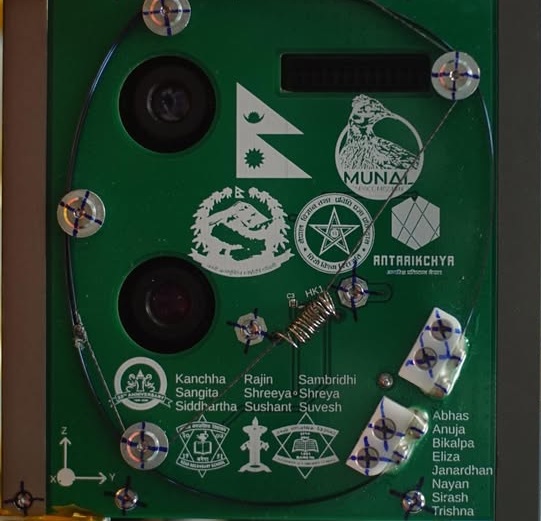
Nepal’s Second Nano Satellite Munal to be Launched Soon
Nepal’s second nano satellite ‘Munal’ is set to be launched soon. The satellite project has been supported by the Nepal Academy of Science and Technology (NAST), Nepal Astronomical Society, Kathmandu University High School (KUHS), and several other governmental and non-governmental institutions.
Although the construction of the satellite was completed earlier, the launch was delayed due to technical issues. The satellite will now be launched with technical assistance from New Space India Limited, under the Indian Space Research Organisation (ISRO).
Nepal’s First Nano Satellite
In 2019 (2076 B.S.), Nepal had launched its first nano satellite, ‘NepaliSat-1,’ weighing about one kilogram. It was launched from NASA headquarters in Virginia, USA, though it was built in Japan by Nepali scientists.
The new satellite Munal also weighs around one kilogram. Dr. Abhas Maskey, a leading scientist who trained the students involved in the project and guided its technical aspects, informed that Munal is more advanced than NepaliSat-1. Munal is equipped with two cameras and was developed through four different stages.
Features of Munal
-
Weight: Approximately 1 kilogram
-
Equipment: Two cameras (for RGB and NIR bands)
-
Functions: Capturing images with AI assistance, mapping greenery, and studying surface density
-
Cost: Around 20 million rupees spent on construction
Dr. Maskey explained that the cameras will capture images in RGB and NIR bands, while the artificial intelligence system will help identify the right locations for imaging.
Agreement and Launch Plans
NAST and ISRO had already signed an agreement for cooperation in the launch of Munal, but delays occurred due to various reasons. Dr. Rabindra Dhakal, Secretary of NAST, stated that the launch will happen soon. While the exact date has not yet been finalized, preparations are underway to launch the satellite by October.
New Space India Limited under ISRO will provide full technical and financial support for the launch. The estimated cost of the launch is around 5 million rupees.


